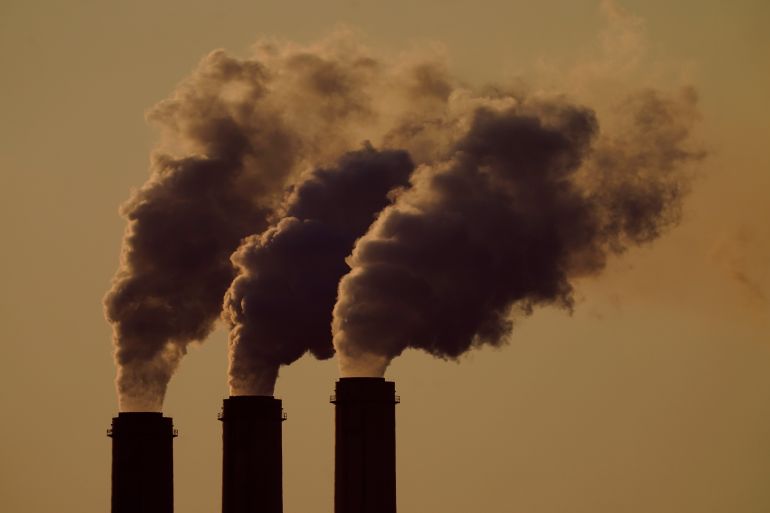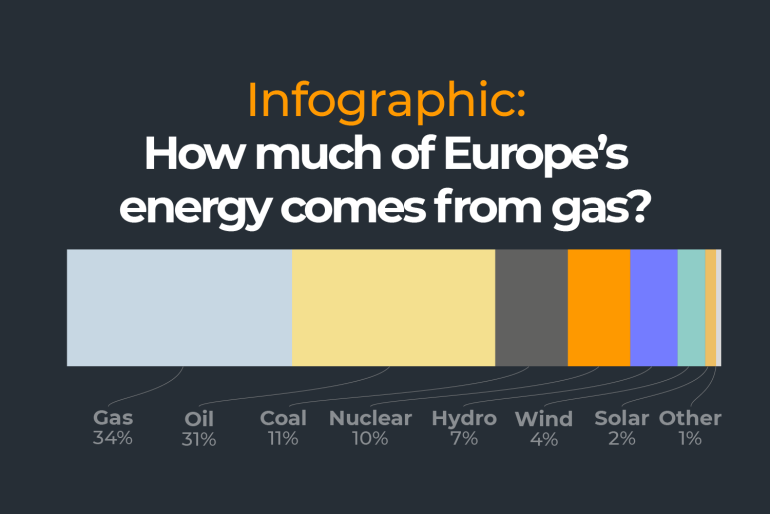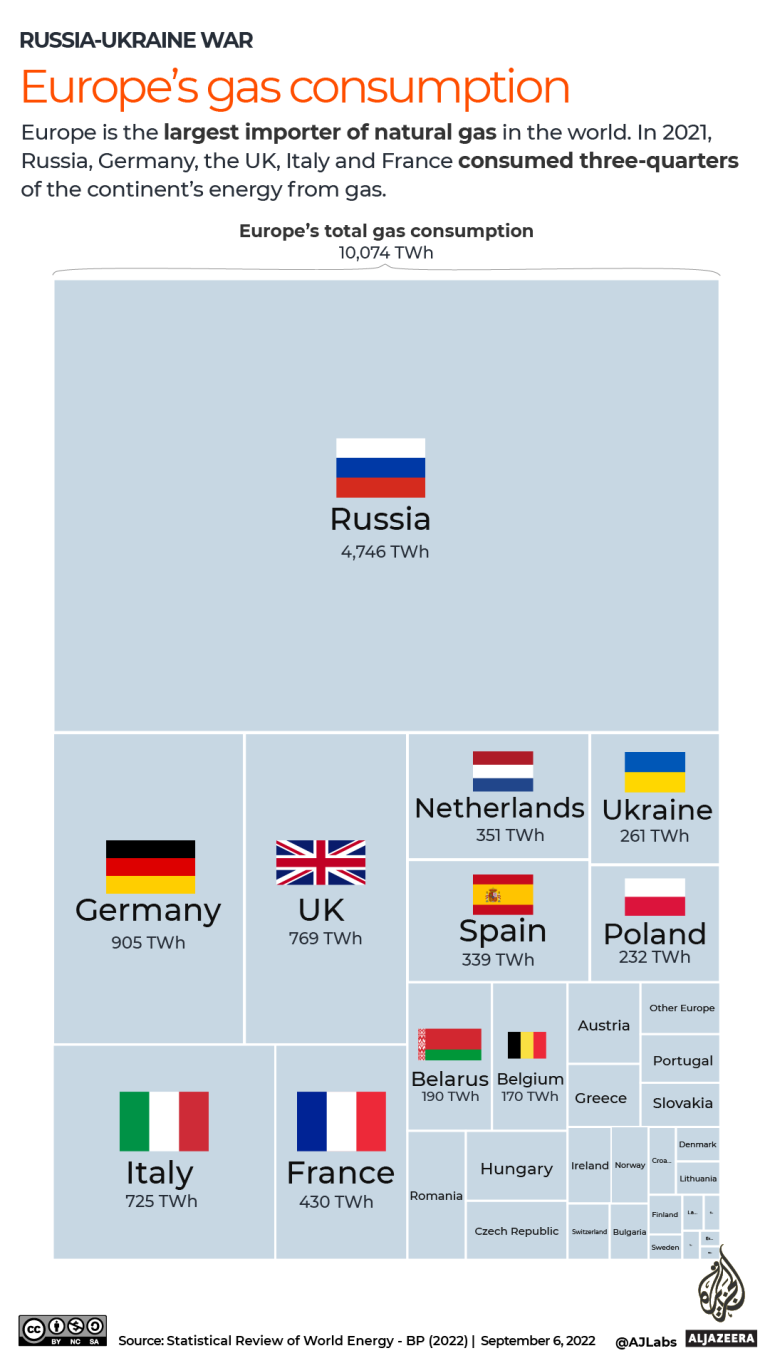Do not backtrack on climate goals amid energy crunch, UN tells EU
Bloc’s member states warned against usage of fossil fuels in response to soaring energy prices amid Russia’s invasion of Ukraine.

The United Nations has called on European Union countries not to resort to more fossil fuels as they face soaring energy prices amid fears of winter shortages.
Countries in the bloc are in the middle of an escalating standoff with Russia following the latter’s invasion of Ukraine more than six months ago. Moscow has since reduced supplies of gas to EU members, sending prices for the fuel soaring and throwing national economies into deep uncertainty.
Keep reading
list of 3 itemsUN denounces Russian ‘intimidation’ of Ukraine war opponents
Power blackout hits eastern Ukraine, Kyiv blames Russia
“In the face of soaring energy prices which threaten to impact the most vulnerable as winter approaches, some EU member states are turning to investments in fossil fuels infrastructure and supplies,” Nada al-Nashif, deputy UN rights chief, told the United Nations Human Rights Council on Monday.
“There is no room for backtracking in the face of the ongoing climate crisis,” al-Nashif said, warning of the long-term consequences of boosting the use of fossil fuels that contribute to global warming.

She pointed to the devastating floods affecting more than 33 million people in Pakistan as an example of what happens when the world fails to act on climate change.
“How many more tragedies of this sort do we need before the urgency of the moment jolts us into action,” she said.
Speaking at the opening of the council’s 51st session in Geneva, al-Nashif acknowledged that the soaring energy prices in Europe “threaten to impact the most vulnerable as winter approaches”.
‘Long-term consequences’
Last week, Russia caused a major scare when it halted gas deliveries to Germany via the key Nord Stream 1 pipeline for an indefinite period.
European countries accuse Russia of weaponising energy supplies in retaliation for Western sanctions imposed on it over its invasion of Ukraine.
But Moscow continues to insist that the sanctions are causing supply issues.
Before the war, about 40 percent of the EU’s gas imports came from Russia. Now Germany and others are scrambling to come up with new ways to heat homes and power factories.
Al-Nashif, who is currently serving as acting high commissioner for human rights until new chief Volker Turk replaces Michelle Bachelet, called for the development of energy-saving projects and renewable energy sources to be urgently accelerated.
“I urge the EU and its member states to consider the long-term consequences of locking in more fossil fuel infrastructure,” she said.
“It is essential to accelerate the development of energy efficiency projects and renewables.”

Al-Nashif also urged all countries “to seek an ambitious outcome” at the next UN climate conference in Egypt in November.
They should seek to “address loss and damage and meet and increase climate finance commitments”, she said.
In her remarks, al-Nashif also touched on rights violations in many countries as the 51st regular session of the Human Rights Council got under way, including the persecution of war opponents and journalists in Russia.
“In the Russian Federation, the intimidation, restrictive measures and sanctions against people voicing opposition to the war in Ukraine undermine the exercise of constitutionally guaranteed fundamental freedoms, including the rights to free assembly, expression and association,” al-Nashif said.
She also said Moscow was violating the right to access information by pressuring journalists, blocking the internet and through other forms of censorship.